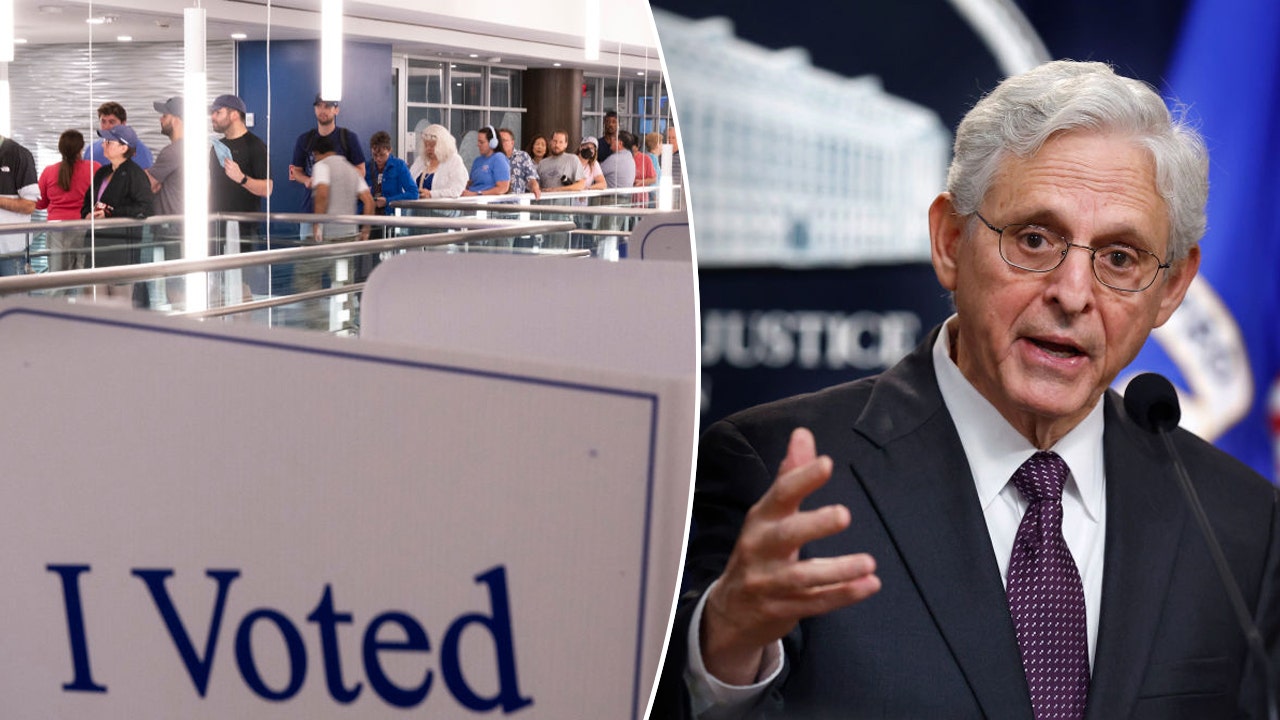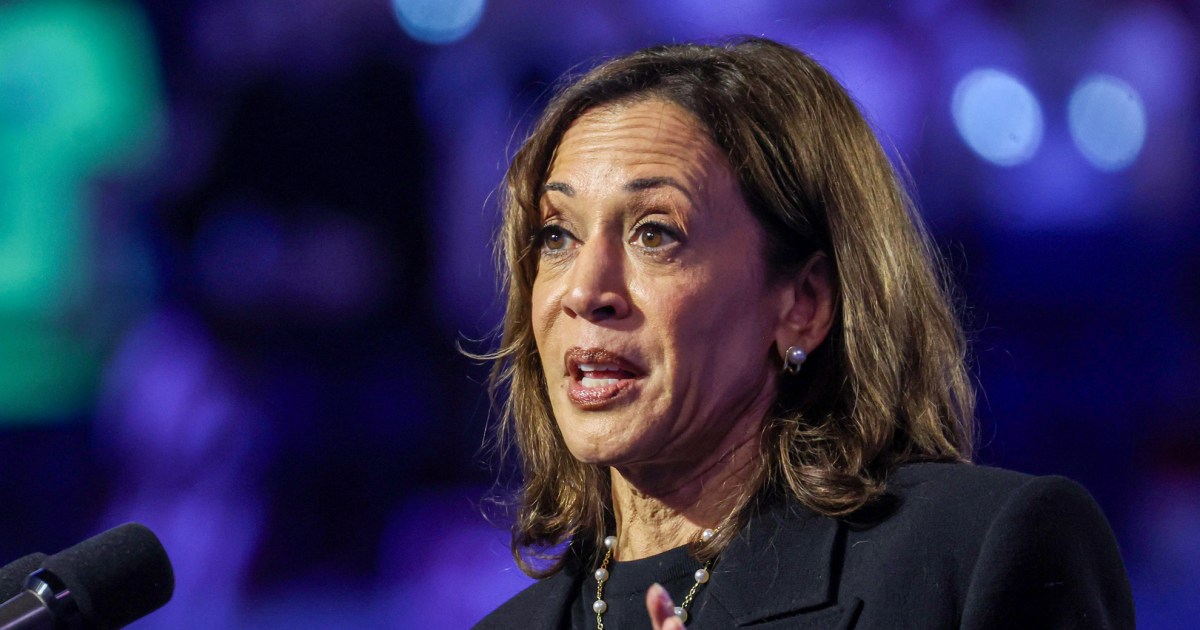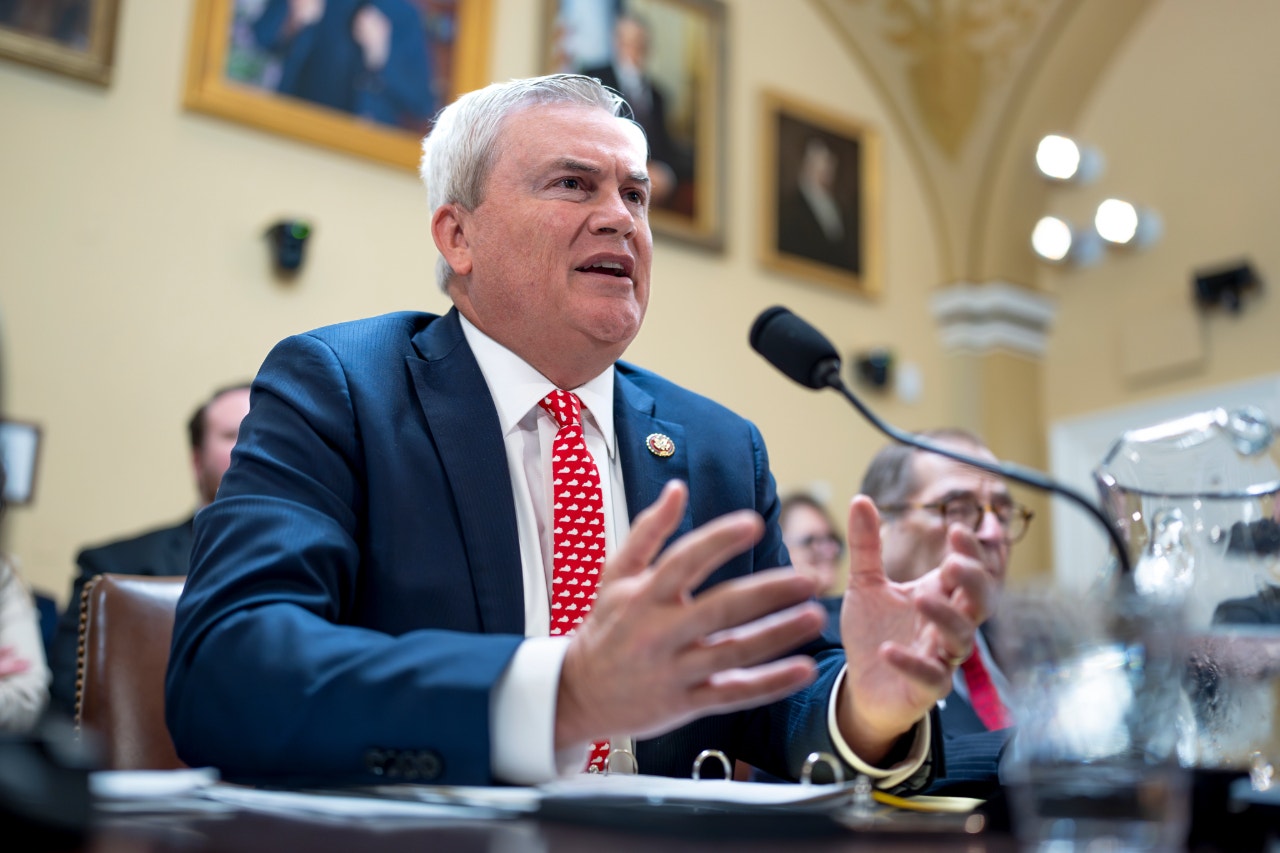- Utah County Clerk Aaron Davidson told the Deseret News earlier this week that he tracks how some local politicians cast their ballots – whether by mail, drop box or in person.
- Davidson says returning a ballot by mail isn’t as secure or safe as putting it in a drop box.
- An Eagle Mountain state representative said Davidson made remarks to her about how she submitted her ballot in the primary election.
Utah
Utah congressional candidate Stewart Peay says Ukraine aid is best investment 'in the history of the Department of Defense'
Editor’s note: This is the first of a series of articles looking at the Republican candidates for Utah’s open 3rd Congressional District seat.
Military veteran Stewart Peay has a practical political philosophy he wants to bring to Utah’s crowded 3rd Congressional District race. Lawmakers, just like service members, are there to do a job so important they can’t let partisan obstructionism get in the way of moving the mission forward, he says.
As one of five Republicans to qualify for the June 25 primary election for the open House seat, Peay, who was endorsed by Sen. Mitt Romney last week, is trying to differentiate himself with his stance on Ukraine and his approach to public service.
“The Republican Party in the United States Congress has kind of come to a crossroads,” Peay said in an interview with the Deseret News editorial board on Wednesday. “There’s a chaos caucus,” he said, “who wants to spend a lot of time pounding their fists and accomplishing very little.” And then there’s a “second path … taking small wins, moving our economy forward, moving our national defense forward, moving our immigration forward.”
Peay supports aid for Ukraine
In addition to taking a firm stance on continued support for Ukraine in its defensive war against Russia, Peay has sought to align himself with Utah Gov. Spencer Cox, current 3rd District Rep. John Curtis and Romney.
“I believe in the civility we’ve seen from Cox, the pragmatism you see from John Curtis, and the bipartisanship you see from Mitt Romney,” Peay said.
Romney — Peay’s uncle-in-law — endorsed Peay on May 8. At the time, Peay told the Deseret News the endorsement was not a family favor and indicated that he was a serious candidate and would be a responsible legislator.
Despite growing pressure from former President Donald Trump and an increasingly isolationist wing of the Republican Party, Peay believes that military support for Ukraine would be a no-brainer for “(Ronald) Reagan and conservatives for the decades that have led up to this.”
“We have a duty that goes back to the Reagan belief of supporting those who will fight for their freedom, which the Ukrainians clearly will,” Peay said. “We need to show that we are not going to allow the Western world to be pushed around.”
In the two years since Russian President Vladimir Putin launched a war to take over Ukraine, Congress has approved some $175 billion in aid to support the Ukrainian government and provide them with weapons, according to the Council on Foreign Relations.
Peay doesn’t think the U.S. should provide more non-military aid with questions arising about accountability and corruption in Ukraine. But he is “fully supportive of giving them the weapons and ammunition” to push Russians behind the line they held a year ago before more recent advances.
“We’re talking about what is roughly 3% of our defense budget,” Peay said. “According to British intelligence, Ukrainians have degraded Russian combat power by about 50%. That’s probably the greatest return on investment in the history of the Department of Defense.”
Peay said he “can’t imagine a scenario” where he would support sending American troops to Ukraine. But, he added, the U.S. must continue to pressure NATO partners to pay their fair share by meeting defense-spending requirements.
Ukraine position informed by time in Russia and Iraq
Peay’s views on foreign policy and on how public officials should conduct themselves were formed at a young age. His father worked as the chief of staff for the Utah Army National Guard and retired as the deputy adjutant general.
“Growing up in that environment, you’re taught to love your country, you’re taught duty, you’re taught honor, you’re taught to do what’s best for your country,” Peay said.
Peay was further convinced of American exceptionalism and the need for strong American leaders, he said, after serving a mission for The Church of Jesus Christ of Latter-day Saints in Russia shortly after the fall of the Soviet Union. He then studied economics at Brigham Young University and received a law degree from BYU’s law school.
Less than six months after taking the bar exam, he was in Baghdad as a National Guard member, where Peay said he spent nearly a year conducting military intelligence for Operation Iraqi Freedom. His task was to help find the infamous “weapons of mass destruction” that spurred America’s 2003 invasion but were never identified.
Peay understands why “many Americans and Republicans have grown tired of war” after 20-plus years of fighting. But he said the conflicts in Ukraine and Iraq couldn’t be more different. By supporting Ukraine, the U.S. is not initiating a war but supporting an ally, he said.
Working in Iraq with representatives from various allied countries, including Britain, Italy and Ukraine, taught him that to achieve American interests abroad, the United States needs to maintain relationships with a coalition of allies, Peay said.
Peay said the “isolationist strand” within the GOP, which he thinks falls just short of a majority in Congress, is “dangerous” because it emboldens enemies and actually forestalls peace.
“There’s a lot of division at home,” Peay said. “And I think there’s a good argument that we should focus on those things. But one of the duties of being the leader of the free world is that you have to focus on home and away.”
Peay’s policy priorities
Among his other top issues, Peay said his first priority is cutting spending. He would do this by supporting a balanced budget amendment prohibiting Congress from spending more than it receives. This would require cuts across the board, including delaying entitlement programs for everyone under 50, Peay said.
Next is reforming the country’s immigration system. Peay said the country must treat the southern border like the northern border and require asylum-seekers to first make their claim to Mexico before they can apply for asylum in the U.S. He also said the country must counter cartels with more aggressive intelligence operations.
Peay said one of the most important roles of anyone who represents Utah’s 3rd District, which includes Sandy, Draper, much of Utah County and all of eastern Utah, is to push back against federal overreach on public lands. He said he would continue Curtis’ effort to repeal new Bureau of Land Management conservation rules and would pressure federal agencies to recognize state and county resource plans when implementing changes.
Peay is the lead commercial litigator at Snell & Wilmer, LLP, in Salt Lake City. He served as Utah County GOP chair from 2019-2021. His first foray into electoral politics was when he ran against Curtis in the 3rd District’s special election in 2017, in which he was eliminated at the state GOP nominating convention.
Peay will appear on the primary ballot as one of four candidates, including Roosevelt mayor JR Bird, Sky Zone CEO Case Lawrence and state auditor John Dougall, who qualified by gathering 7,000 certified signatures. They will face the GOP convention nominee, state Sen. Mike Kennedy, in the June 25 primary.
On Nov. 5, the Republican nominee will face off against Democratic candidate Glenn Wright.

Utah
Utah Jazz vs. San Antonio Spurs: Game Preview, How to Watch

The Utah Jazz look for their first win of the season during their fifth outing on the year, set to take on Victor Wembanyama and the San Antonio Spurs back at home on Halloween night.
Starting off with a 0-4 record, the Jazz sit as the lone team in the NBA without a win to their name yet, as the Detroit Pistons secured their first of the year on Wednesday night. It may be tough without a few key players like Taylor Hendricks and Lauri Markkanen potentially out of the lineup, but it’s hard to count Utah out when they’re on home turf.
Entering Thursday’s matchup, the Jazz will be favored to win this game via the sportsbooks for the first time this season.
As for the Spurs, they’ve gotten off to a rocky beginning for their season through four games, logging a 1-3 record to place right alongside the Jazz at the bottom of the Western Conference standings. However, with a long season ahead, and a talent like Wembanyama holding down both ends of the floor, it’s hard to count this team out in any matchup.
With that, here’s everything you need to know ahead of the Jazz’s fifth regular season game of the year.
Follow Inside The Jazz on Facebook and Twitter/X, and subscribe to YouTube for breaking Jazz news videos and live streams!
Utah
Game Preview: San Antonio Spurs vs Utah Jazz

“Comparison is the thief of joy”, we’re told. It’s a saying of such economy and self-assuredness that it carries a unique quality of assumed truth. You know, the kind of truth that lends itself to an angsty typeset and melodramatic photo background perfect for passive-aggressively sniping at others on social media.
The thing is, there are a lot of benefits to comparison. Human beings bob about in an ocean of relativity; joy relative to every other moment of joy, pain relative to every other pain. Comparison is a part of what fills out our understanding of perspective. Like it or not, knowing who we are is at least partially tied to knowing who we’re not.
And in spite of a 1-3 record, the Spurs are definitely not the Utah Jazz.
It’s easy to make that mistake, I know. Patty Mills plays for the Jazz, and that’s confusing. The Spurs only have one win more than the Jazz, and that’s confusing too. But the reality is that these are two teams on different parts of a similar journey — The Jazz aimed head-first in one direction in search of a superstar, the Spurs on a slow incline upwards having already secured theirs.
The difference is apparent if you watch the stripped-down Jazz for a quarter or two. There’s a nonchalance on the court that’s incredibly familiar. Like the Spurs in seasons past, the Jazz can’t be too transparent, but the urgency is visibly lacking. The Spurs, on the other hand, in the midst of a rough opening schedule, look almost too urgent — both the team and the gargantuan French wunderkind nonplussed that they’re not as advanced and cohesive as they’d like to be yet.
The stats bear the difference out, even if you haven’t been keeping an eye on the Jazz.
The Spurs are 21st in FG%, 21st in Assist %, 22nd in 3pt%, 22nd in True Shooting%, and 12th in Defensive Rating. The Jazz are 30th, 27th, 29th, 30th, and 26th.
Even more telling is the disparity in Net Rating. And while the Spurs aren’t doing great at 27th, the Jazz are dead last at a jaw-dropping -17.0, almost a full 10 points worse than the Spurs, and -8.5 points worse than the 2nd-to-last Pelicans.
See, now aren’t you glad we compared the two teams? It certainly made me feel better about the Spurs’ bumpy start to the season.
There’s not a lot of incentive for the Jazz to play the Spurs hard in this one, nor to rush back their best player in Lauri Markkanen in what will almost certainly be a purposely lost year. I wouldn’t be surprised to see the Jazz hold him out in this one, since back injuries are something to cautious about to begin with.
If that ends up being the case, the floodgates might open against a quietly frustrated Spurs team hunting for a win and a rhythm.
On the other hand, if the tanking Jazz do manage to beat the Spurs, well…we might have to circle back around to that whole ‘thief of joy’ thing again.
San Antonio Spurs at Utah Jazz
October 30th, 2024 | 8:00 CT
Watch: FanDuel Sports Network Southwest |Listen: WOAI (1200 AM)
Spurs Injuries: Devin Vassell – Out (Foot), Tre Jones – Out (Ankle)
Jazz Injuries: Taylor Hendricks – Out (Leg), Isaiah Collier – Questionable (Hamstring), Lauri Markkanen – Questionable (Back)
What to watch for:
Snapping The Wembanyama Slump
For those who’ve been watching so far, it’s clear that Victor hasn’t quite found his rhythm yet. He had his first legitimately bad game against the Thunder last night, managing only 5 total attempts on an evening where the Thunder’s suffocating defense made points hard to come by, and gave Wemby hardly an inch of breathing room all night. Part of being a superstar in the NBA is learning how to get yours even when the opposition is throwing everything at you, and that’s clearly still a work in progress, especially with Wemby coming off of some form of illness. However, it’s been a pattern that Wembanyama comes out swinging after an off night, and the Jazz are likely to be on the receiving end of his frustrations. There is almost always a good reason to keep an eye out for a spectacular night from San Antonio’s Gallic sophomore, but he’s due a monstrous game sooner or later, and Halloween against the Jazz might end up being a fright night you’ll be sorry you missed out on. (Plus, there’s no telling what pregame costume the Slender Man will be showing up to the game in, and that’s always fun too)
For the Jazz’ fans’ perspective, visit SLC Dunk.
PtR’s Game thread will be up this evening for those who want to chat through the game. You can also follow along with the action through PtR’s Twitter feed.
Utah
'Concerning:' Utah County attorney confirms investigation into ballot tracking
Utah County Attorney Jeff Gray confirmed Wednesday that his office is investigating Utah County Clerk Aaron Davidson’s tracking of how elected officials cast their votes, first reported by the Deseret News.
“We’re looking into it. I’ve asked one of my investigators to look into the matter,” Gray said, after being informed by state Sen. Mike McKell, R-Spanish Fork, that Davidson had told the Deseret News he knew that McKell had mailed in his primary ballot without a stamp because he tracked the voting method used by a “list of politicians.”
“It raises concerns to me, obviously,” Gray said. “It may be a matter of, do we need a legislative fix? The election laws are somewhat complicated and this isn’t something that we typically investigate. So we’re still pouring through those. It’s really kind of a legislative policy as to what they want disclosed and not disclosed. And at the end of the day, what do the people want.”
The county attorney said the investigation is “going to take a little time” and will also look into other allegations, including that some Utah County voters who mailed back their ballots without stamps were contacted by the clerk’s office. Gray said “it’s hard to say” whether it’s a criminal investigation at this point.
“It’s concerning. But again, I need to determine what the facts are, and whether or not there is a violation of the law. That’s my focus. It’s not a political (focus) and it doesn’t matter whether I’m concerned or not,” he said. “I just need to do my due diligence and make sure that the law has been complied with.”
‘Unsettling:’ Lawmaker says Utah County clerk knew she voted by mail
Also Wednesday, state Rep. Stephanie Gricius, R-Eagle Mountain, told the Deseret News that Davidson made a point of bringing up recently that she’d voted by mail in the June primary, an “unsettling” and “unusual” comment that has her asking whether new legislation is needed to protect voter privacy.
“Basically, he said something along the lines of, ‘Hey, if I remember right, you mailed your ballot in for the primary. I’m going to strongly encourage you to use a drop box for the general election.’ That was pretty much the end of conversation but it was at that point I figured out, ‘OK, he’s looked up how I sent in my ballot,’” Gricius said.
“I didn’t have time to get into that with him,” she said, because their brief exchange occurred at a state senate debate earlier this month where she was serving as a volunteer. Still, Gricius said, “it was a little unsettling. My first instinct was to question what other information about my ballot that he had.”
She also said she “found it unusual that it would come up. We weren’t talking about that at all when it was brought up,” she said. “Really, it was just that unsettling component of, well, do you know who I voted for? How did you find that information? What went into the process of you looking that up?”
Gricius said she reached out to a former employee in the clerk’s office “to see if that was information that was tracked normally or if that was something new and they explained the clerk’s office does keep track of how ballots are submitted as part of the chain of custody, but that he would have had to look me up individually to see my personal information.”
She also contacted an elections law attorney in the Office of Legislature Research and General Counsel about the issue but they have yet to connect.
“I wanted to know what’s the problem — is there a problem, first of all, and then, what is it. And if there is no legal problem, then why not and what do we need to do to make sure people’s ballots are truly protected,” the Eagle Mountain lawmaker said. “I think that using someone’s private ballot, that again is constitutionally protected, to push a political position is completely inappropriate.”
It’s too soon to say whether that will lead to her proposing changes in the law, she said.
What the Utah County clerk says about the controversy
Davidson did not respond to calls or texts Wednesday asking for comment about the investigation.
During the primary, he and McKell tussled on social media about Utah County not paying for return postage on ballots, a decision made to discourage voters from sending them back via the U.S. Postal Service. Davidson said voting by mail is not as safe or as secure as using a drop box provided by the county.
Before McKell said he’d brought his concerns to the county attorney, Davidson said McKell was the only person whose voting method he publicized even though tracking the method politicians use to vote is “really easy. You just put their name in and it pops up. So I looked at it but I didn’t do anything with it” when it came to others.
“It was just that one time I did it. It was just for the primary because Michael McKell was out there saying all this trash about, ‘Go ahead and cast your ballot using the mail and don’t pay for postage, you don’t have to. He was politicizing that whole thing,” Davidson said.
He said he hasn’t tracked any general election ballots, but that could change “if Mike McKell wants to make a political issue out of it.” Davidson also said the public could access the same information.
The state Elections Office has not commented on the controversy but the state’s director of election, Ryan Cowley, said in a statement the state’s publicly available voter records wouldn’t specify whether or not a ballot was returned through the U.S. Postal Service.
“Counties may use other methods to track where ballots come from, but the state voter registration system only tracks the broad categories which doesn’t differentiate between post office or drop box,” Cowley said.
-

 Movie Reviews1 week ago
Movie Reviews1 week agoAlien Country (2024) – Movie Review
-
/cdn.vox-cdn.com/uploads/chorus_asset/file/25431700/STK201_SAM_ALTMAN_CVIRGINIA_A.jpg)
/cdn.vox-cdn.com/uploads/chorus_asset/file/25431700/STK201_SAM_ALTMAN_CVIRGINIA_A.jpg) Technology7 days ago
Technology7 days agoOpenAI plans to release its next big AI model by December
-

 Health6 days ago
Health6 days agoNew cervical cancer treatment approach could reduce risk of death by 40%, trial results show
-

 Culture7 days ago
Culture7 days agoTop 45 MLB free agents for 2024-25 with contract predictions, team fits: Will Soto get $600M+?
-

 Sports5 days ago
Sports5 days agoFreddie Freeman's walk-off grand slam gives Dodgers Game 1 World Series win vs. Yankees
-
News5 days ago
Sikh separatist, targeted once for assassination, says India still trying to kill him
-

 Culture5 days ago
Culture5 days agoFreddie Freeman wallops his way into World Series history with walk-off slam that’ll float forever
-

 Technology4 days ago
Technology4 days agoWhen a Facebook friend request turns into a hacker’s trap




/cdn.vox-cdn.com/uploads/chorus_asset/file/25697380/STK071_APPLE_A.jpg)










